
Useful Information - Material
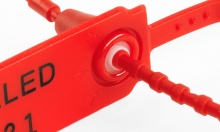
Acetal – Polyoxymethylen – POM
Acetal, also known under the brand name Delrin, is used to make the locking mechanisms of various plastic seals. This thermoplastic is strong, hard and rigid over a wide temperature range.
more info
...close
Acetal absorbs very little water and remains hard at temperatures down to -40°C. It is also highly heat resistant, melting at 180°C. Acetal may be approved for contact with foodstuffs. Disposal: pure acetal is classified as recycling code 07 (other plastics) and can be melted down if cleanly separated from other waste.
Composites of this material are classified as follows:
- plastic/aluminium – recycling code 90
- plastic/tinplate – recycling code 91
- plastic/miscellaneous metals – recycling code 92
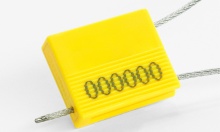
Acrylonitrile butadiene styrene – ABS
Acrylonitrile butadiene styrene is resistant to oil and can withstand high temperatures, permitting continuous use between 85°C and 100°C. Disposal: ABS is classified as recycling code 07 (other plastics) and can be melted down if cleanly separated from other waste.
more info
...close
Composites of this material are classified as follows:
- plastic/aluminium – recycling code 90
- plastic/tinplate – recycling code 91
- plastic/miscellaneous metals – recycling code 92
Seals made from ABS: Locktainer SH and SHL, Locktainer SHC, Locktainer SHR-C, Locktainer 2020, IP Seal, FastGrip 100, FastGrip 120, Flexigrip 100 S, Flexigrip 150 S.
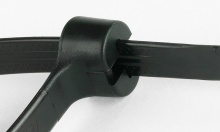
Polyamide 6 – Nylon 6 – PA
Polyamide 6, commonly known as Nylon 6, is used as a base material for various plastic seals. This thermoplastic is very strong, rigid and tough. It is highly resistant to wear, friction and abrasion.
more info
...close
Polyamide 6 is also highly resistant to heat, chemicals, lubricants and motor fuels. However, polyamides can absorb water, which make them susceptible to frost damage.
Disposal: PA is classified as recycling code 07 (other plastics) and can be melted down if cleanly separated from other waste.
Composites of this material are classified as follows:
Disposal: PA is classified as recycling code 07 (other plastics) and can be melted down if cleanly separated from other waste.
Composites of this material are classified as follows:
- plastic/aluminium – recycling code 90
- plastic/tinplate – recycling code 91
- plastic/miscellaneous metals – recycling code 92
- Seals made from PA: BP 540, BP 570, Cable Tie, Combi.
- plastic/tinplate – recycling code 91
- plastic/miscellaneous metals – recycling code 92
Seals made from PA: BP 540, BP 570, Cable Tie, Combi.
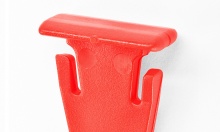
Polystyrene – PS
Polystyrene is used as a base material for various plastic seals. This thermoplastic is resistant to all alkalis and mineral acids, but not to non-polar solvents such as petrol, ketones (eg. acetone) and aldehydes.
more info
...close
Polystyrene absorbs little to no water, so it is not susceptible to frost damage. However, it does not have long-term resistance toUV light and to heat; prolonged exposure to temperatures of 55°C and above will speed up the aging process. Polystyrene is classed as physiologically inert, making it safe for contact with foodstuffs; it is the only plastic that is approved for use in storing raw meat and fish.
Disposal: polystyrene is classified as recycling code 06 and can be melted down if cleanly separated from other waste.
Disposal: polystyrene is classified as recycling code 06 and can be melted down if cleanly separated from other waste.
- Composites of this material are classified as follows: plastic/aluminium – recycling code 90
- plastic/tinplate – recycling code 91
- plastic/miscellaneous metals – recycling code 92
Seals made from PS: Polywedge.
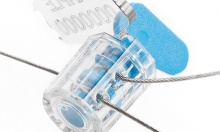
Polycarbonate – PC
Polycarbonate is used as a base material for various plastic seals. It is stiff, strong, tough and hard. Polycarbonates are resistant to water, as well as many mineral acids, oils and fats.
more info
...close
However, they are sensitive to UV light; prolonged exposure will leave them yellow and brittle.
Disposal: PA is classified as recycling code 07 (other plastics) and can be melted down if cleanly separated from other waste.
Composites of this material are classified as follows:
Disposal: PA is classified as recycling code 07 (other plastics) and can be melted down if cleanly separated from other waste.
Composites of this material are classified as follows:
- plastic/aluminium – recycling code 90
- plastic/tinplate – recycling code 91
- plastic/miscellaneous metals – recycling code 92
Seals made from PC: BP 110 Twister, BP 151 Twister.
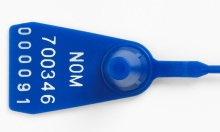
Polyethylene – PE
Polyethylene hardly absorbs any water, so it is not susceptible to frost damage. It is heat resistant up to 90°C, but prolonged exposure to temperatures above 80°C will lead to the material becoming softer. HDPE does not have long-term resistance to UV light; prolonged exposure to direct sunlight will slowly make it brittle.
more info
...close
Disposal: HDPE is classified as recycling code 02 and can be melted down if cleanly separated from other waste.
Composites of this material are classified as follows:
Composites of this material are classified as follows:
- plastic/aluminium – recycling code 90
- plastic/tinplate – recycling code 91
- plastic/miscellaneous metals – recycling code 92
Seals made from PE: PL 10, PL 91, PL 95, PL 95 for Seal Clamps, Cable Tie (reusable)
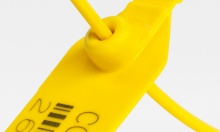
Polypropylene – PP
Polypropylene is used as a base material for various plastic seals. The rigidity, hardness and strength levels of this thermoplastic are higher than those of Polyethylene, but lower than those of Polyamide.
more info
...close
Polypropylene is resistant to most organic solvents and fats, and to dilute acids and alkalis. It is heat resistant up to 105°C, but becomes brittle under cold conditions. Polypropylene is classed as physiologically inert, making it safe for contact with foodstuffs and for pharmaceutical applications.
Disposal: polypropylene is classified as recycling code 05 and can be melted down if cleanly separated from other waste.
Composites of this material are classified as follows:
Disposal: polypropylene is classified as recycling code 05 and can be melted down if cleanly separated from other waste.
Composites of this material are classified as follows:
- plastic/aluminium – recycling code 90
- plastic/tinplate – recycling code 91
- plastic/miscellaneous metals – recycling code 92
Seals made from PP: BP 410, BP 411, BP 412, BP 413, BP 414, BP 415, BP 570, BP 571, BP 586, ID Seal, Universal, Poly-Check, Sydex, Dartlock, Padlock, Snaplock.
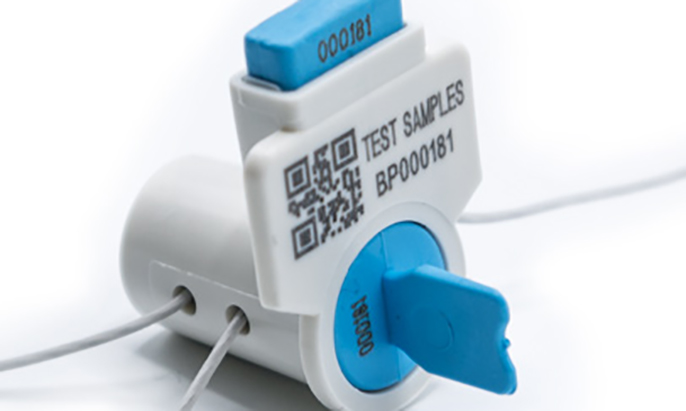
Polyketone - PK
Polyketone has very good mechanical properties such as high rigidity, low water absorption and high dimensional stability. Particularly noteworthy are the high wear resistance and the very good resistance to aggressive chemical media, alkalis, lubricants, oils, greases and weak acids.
more info
...close
This plastic has a low viscosity as well as high impact and abrasion resistance. The long-term service temperature is between -40 and 100 °C and up to 150 °C for short periods. The melting point is 220 °C.
Polyketone seals: BP 140 PK and BP 140-XL PK
